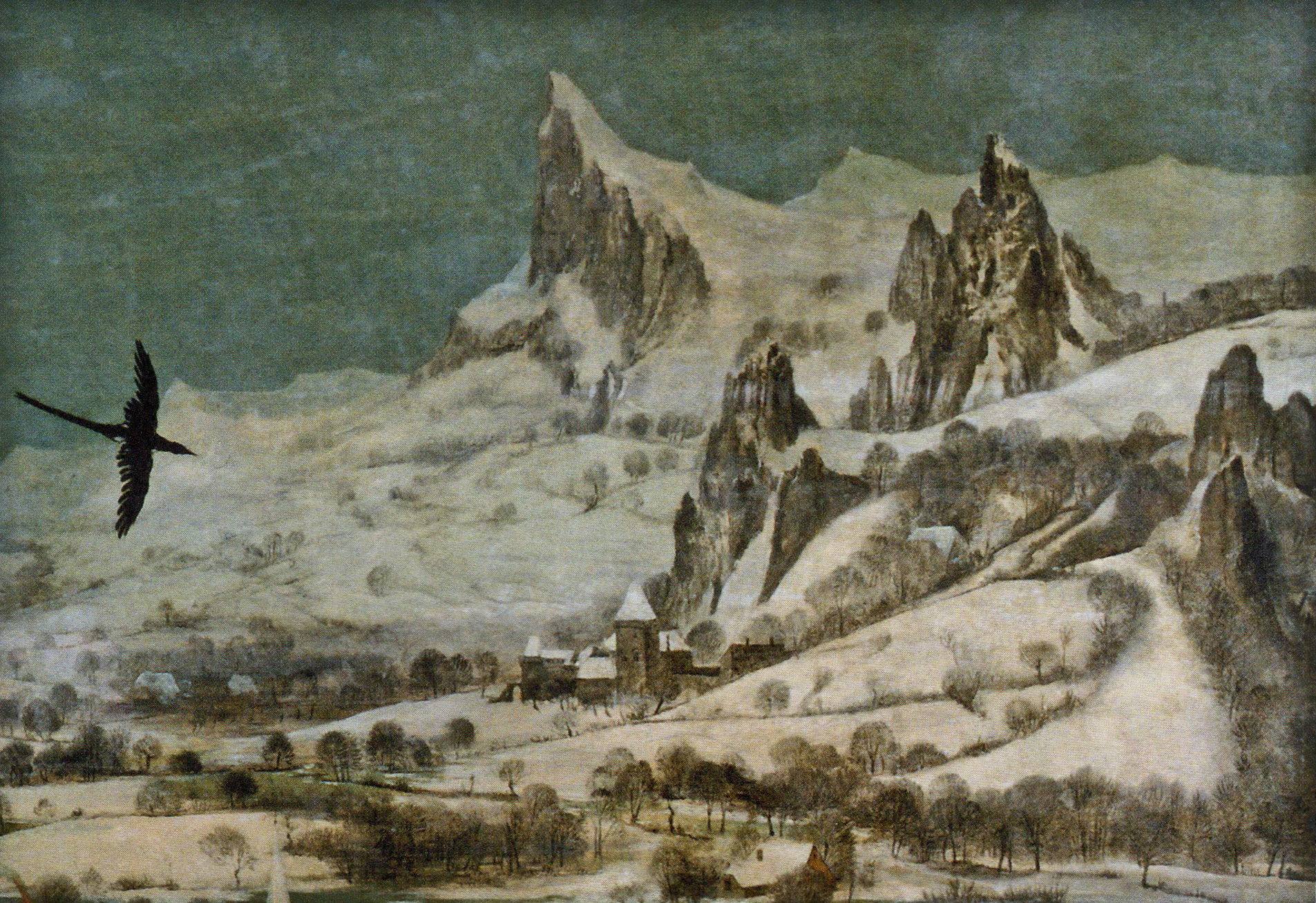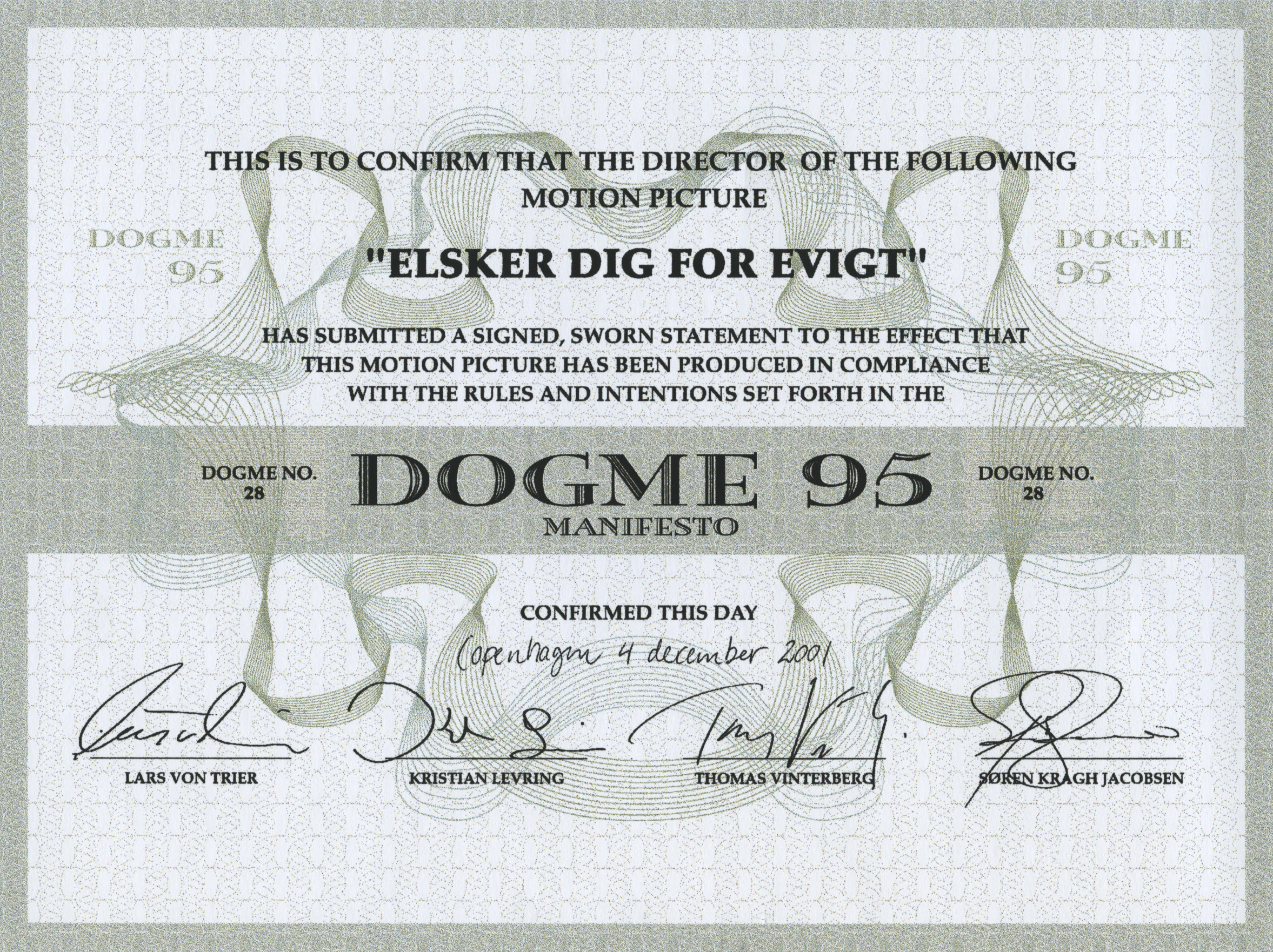|
The Hunters In The Snow
''The Hunters in the Snow'' ( nl, Jagers in de Sneeuw), also known as ''The Return of the Hunters'', is a 1565 oil-on-wood painting by Pieter Bruegel the Elder. The Dutch and Flemish Renaissance painting, Northern Renaissance work is one of a series of works, five of which still survive, that depict different times of the year. The painting is in the collection of the Kunsthistorisches Museum in Vienna, Austria. This scene is set in the depths of winter during December/January. Background and origins ''The Hunters in the Snow'', and the series to which it belongs, are in the medieval and early Renaissance tradition of the Labours of the Months: depictions of various rural activities and work understood by a spectator in Breugel's time as representing the different months or times of the year. Description and composition The painting shows a wintry scene in which three hunters are returning from an expedition accompanied by their dogs. By appearances the outing was not successfu ... [...More Info...] [...Related Items...] OR: [Wikipedia] [Google] [Baidu] |
Pieter Bruegel The Elder
Pieter Bruegel (also Brueghel or Breughel) the Elder (, ; ; – 9 September 1569) was the most significant artist of Dutch and Flemish Renaissance painting, a painter and printmaker, known for his landscapes and peasant scenes (so-called genre painting); he was a pioneer in making both types of subject the focus in large paintings. He was a formative influence on Dutch Golden Age painting and later painting in general in his innovative choices of subject matter, as one of the first generation of artists to grow up when religious subjects had ceased to be the natural subject matter of painting. He also painted no portraits, the other mainstay of Netherlandish art. After his training and travels to Italy, he returned in 1555 to settle in Antwerp, where he worked mainly as a prolific designer of prints for the leading publisher of the day. Only towards the end of the decade did he switch to make painting his main medium, and all his famous paintings come from the following peri ... [...More Info...] [...Related Items...] OR: [Wikipedia] [Google] [Baidu] |
Christmas Cards
A Christmas card is a greeting card sent as part of the traditional celebration of Christmas in order to convey between people a range of sentiments related to Christmastide and the holiday season. Christmas cards are usually exchanged during the weeks preceding Christmas Day by many people (including some non-Christians) in Western society and in Asia. The traditional greeting reads "wishing you a Merry Christmas and a Happy New Year". There are innumerable variations on this greeting, many cards expressing more religious sentiment, or containing a poem, prayer, Christmas song lyrics or Biblical verse; others focus on the general holiday season with an all-inclusive "Season's greetings". The first modern Christmas card was by John Calcott Horsley. A Christmas card is generally commercially designed and purchased for the occasion. The content of the design might relate directly to the Christmas narrative with depictions of the Nativity of Jesus, or have Christian symbols su ... [...More Info...] [...Related Items...] OR: [Wikipedia] [Google] [Baidu] |
24 Frames (film)
''24 Frames'' () is a 2017 Iranian experimental film directed by Abbas Kiarostami. It was his final feature film before his death in July 2016. It was posthumously shown in the 70th Anniversary Events section at the 2017 Cannes Film Festival. Release and critical reception ''24 Frames'' premiered at the 70th Cannes Film Festival on 23 May 2017. In the United States, Janus Films began the film's limited release on 2 February 2018 at the Film Society of Lincoln Center. Critical reception On review aggregator website Rotten Tomatoes, the film has an approval rating of 92% based on 53 reviews, with an average rating of 7.6/10. The website's critical consensus reads, "''24 Frames'' offers Kiarostami fans one final, affecting reminder of what made this filmmaker a talent to treasure." On Metacritic, which assigns a normalized rating to reviews, the film has a weighted average score of 77 out of 100, based on 15 critics, indicating "generally favorable reviews". References Extern ... [...More Info...] [...Related Items...] OR: [Wikipedia] [Google] [Baidu] |
Abbas Kiarostami
Abbas Kiarostami ( fa, عباس کیارستمی ; 22 June 1940 – 4 July 2016) was an Iranian film director, screenwriter, poet, photographer, and film producer. An active filmmaker from 1970, Kiarostami had been involved in the production of over forty films, including shorts and documentaries. Kiarostami attained critical acclaim for directing the '' Koker'' trilogy (1987–1994), '' Close-Up'' (1990), ''The Wind Will Carry Us'' (1999), and '' Taste of Cherry'' (1997), which was awarded the Palme d'Or at the Cannes Film Festival that year. In later works, ''Certified Copy'' (2010) and ''Like Someone in Love'' (2012), he filmed for the first time outside Iran: in Italy and Japan, respectively. His films '' Where Is the Friend's Home?'' (1987), ''Close-Up'', and ''The Wind Will Carry Us'' were ranked among the 100 best foreign films in a 2018 critics' poll by BBC Culture. '' Close-Up'' was also ranked one of the 50 greatest movies of all time in the famous decennial ''Sight ... [...More Info...] [...Related Items...] OR: [Wikipedia] [Google] [Baidu] |
A Pigeon Sat On A Branch Reflecting On Existence
''A Pigeon Sat on a Branch Reflecting on Existence'' ( sv, En duva satt på en gren och funderade på tillvaron) is a 2014 internationally co-produced black comedy-drama film written and directed by Roy Andersson. It is the third installment in his "Living" trilogy, following '' Songs from the Second Floor'' (2000) and '' You, the Living'' (2007). It premiered at the 71st Venice International Film Festival where it was awarded the Golden Lion for Best Film. It was selected as the Swedish entry for the Best Foreign Language Film at the 88th Academy Awards but it was not nominated. Its title is a reference to the 1565 painting ''The Hunters in the Snow'' by Pieter Bruegel the Elder. The painting depicts a rural wintertime scene, with some birds perched on tree branches. Andersson said he imagined that the birds in the scene are watching the people below, wondering what they are doing. He explained the title of the film as a "different way of saying 'what are we actually doing' ... [...More Info...] [...Related Items...] OR: [Wikipedia] [Google] [Baidu] |
Roy Andersson
Roy Arne Lennart Andersson (born 31 March 1943) is a Swedish film director, best known for ''A Swedish Love Story'' (1970), '' About Endlessness'' (2019) and his "Living trilogy," which includes ''Songs from the Second Floor'' (2000), ''You, the Living'' (2007) and ''A Pigeon Sat on a Branch Reflecting on Existence'' (2014). ''Songs from the Second Floor'', more than any other, cemented and exemplified his personal style – which is characterized by long takes, absurdist comedy, stiff caricaturing of Swedish culture and grotesque. He has spent much of his professional life working on advertisement spots, directing over 400 commercials and two short films; directing six feature-length films in six decades. His 2014 film ''A Pigeon Sat on a Branch Reflecting on Existence'' won the Golden Lion award at 71st Venice International Film Festival, making Andersson the only Swedish director and the second Nordic director to win the award in the history of the festival, after Danish C ... [...More Info...] [...Related Items...] OR: [Wikipedia] [Google] [Baidu] |
Dans La Ville Blanche
''In the White City'' (french: Dans la ville blanche) is a 1983 Swiss drama film directed by Alain Tanner. It was entered into the 33rd Berlin International Film Festival. The film was selected as the Swiss entry for the Best Foreign Language Film at the 56th Academy Awards, but was not accepted as a nominee. Synopsis Paul, a mechanic on an oil tanker, settles in a small bar-hotel during a stopover in Lisbon. He sends 8mm films and letters about his travels to his girlfriend, Élisa, who stays in Switzerland. He encounters a pretty waitress at a bar, Rosa, and they quickly become lovers. Paul continues to write to Élisa describing the whiteness of the city. He meanders through Lisbon where his purpose in life appears to become directionless and he eventually loses contact with Rosa. Cast * Bruno Ganz as Paul * Teresa Madruga as Rosa * Julia Vonderlinn as Élisa / The Swiss woman * José Carvalho as Le patron * Francisco Baião as Le voleur au couteau * José Wallenste ... [...More Info...] [...Related Items...] OR: [Wikipedia] [Google] [Baidu] |
Alain Tanner
Alain Tanner (6 December 1929 – 11 September 2022) was a Swiss film director. Early years and education Tanner was born in Geneva, and studied economics at the University of Geneva. In 1951, he joined the film club which Claude Goretta had recently established at the university. After his graduation and a short time working for international shipping companies in London, he continued feeling drawn to film. Film career Tanner found work at the British Film Institute in 1955, subtitling, translating, and organizing the archive. His first film, '' Nice Time'' (1957), a short documentary film about Piccadilly Circus during weekend evenings, was made with Claude Goretta. Produced by the British Film Institute Experimental Film Fund, it was first shown as part of the third Free Cinema programme at the National Film Theatre in May 1957. The debut film won a prize at the film festival in Venice and much critical praise. Tanner went to France for a while where he assisted with sever ... [...More Info...] [...Related Items...] OR: [Wikipedia] [Google] [Baidu] |
Melancholia (2011 Film)
''Melancholia'' is a 2011 apocalyptic drama art film written and directed by Lars von Trier and starring Kirsten Dunst, Charlotte Gainsbourg, and Kiefer Sutherland, with Alexander Skarsgård, Brady Corbet, Cameron Spurr, Charlotte Rampling, Jesper Christensen, John Hurt, Stellan Skarsgård, and Udo Kier in supporting roles. The film's story revolves around two sisters, one of whom marries just before a rogue planet is about to collide with Earth. ''Melancholia'' is the second film in von Trier's unofficially titled ''Depression Trilogy''. It was preceded in 2009 by ''Antichrist'' and followed by '' Nymphomaniac'' in 2013. On 18 May 2011, ''Melancholia'' premiered at the 64th Cannes Film Festival, where it was received with critical acclaim and Dunst received the festival's Best Actress Award for her performance, which was a common area of praise among critics. Although it has detractors, many critics and film scholars have considered the film to be a personal masterpiece; c ... [...More Info...] [...Related Items...] OR: [Wikipedia] [Google] [Baidu] |
Lars Von Trier
Lars von Trier ('' né'' Trier; 30 April 1956) is a Danish filmmaker, actor, and lyricist. Having garnered a reputation as a highly ambitious, polarizing filmmaker, he has been the subject of several controversies: Cannes, in addition to nominating and awarding his films on numerous occasions, once listed him as '' persona non grata'' for flippant Nazi remarks during an interview; depictions of graphic violence and unsimulated sex in some of his films have drawn criticism; and he has been accused of mistreating actresses during filming, including Björk and Nicole Kidman. Trier's career has spanned more than four decades and his works have gained notoriety for his trademarks including European frequent actors (particularly Jean-Marc Barr, Udo Kier and Stellan Skarsgård), different thematic trilogies, handheld camerawork, upsetting subject matters, genre and technical innovation, confrontational examination of existential, social, and political issues, and his treatment of su ... [...More Info...] [...Related Items...] OR: [Wikipedia] [Google] [Baidu] |
The Mirror (1975 Film)
''Mirror'' (russian: Зеркало, Zerkalo, link=no) is a 1975 Russian drama film directed by Andrei Tarkovsky. It is loosely autobiographical, unconventionally structured, and incorporates poems composed and read by the director's father, Arseny Tarkovsky. The film features Margarita Terekhova, Ignat Daniltsev, Alla Demidova, Anatoly Solonitsyn, Tarkovsky's wife Larisa Tarkovskaya and his mother Maria Vishnyakova. Innokenty Smoktunovsky provides voiceover and Eduard Artemyev the incidental music and sound effects. ''Mirror'' is structured in the form of a nonlinear narrative, with its main concept dating back to 1964 and undergoing multiple scripted versions by Tarkovsky and Aleksandr Misharin. It unfolds around memories recalled by a dying poet of key moments in his life and in Soviet culture. The film combines contemporary scenes with childhood memories, dreams, and newsreel footage. Its cinematography slips between color, black-and-white, and sepia. The film's loose flo ... [...More Info...] [...Related Items...] OR: [Wikipedia] [Google] [Baidu] |
Solaris (1972 Film)
''Solaris'' (russian: link=no, Солярис, tr. ''Solyaris'') is a 1972 Soviet science fiction drama film based on Stanisław Lem's 1961 novel of the same title. The film was co-written and directed by Andrei Tarkovsky, and stars Donatas Banionis and Natalya Bondarchuk. The electronic music score was performed by Eduard Artemyev and features a composition by J.S. Bach as its main theme. The plot centers on a space station orbiting the fictional planet Solaris, where a scientific mission has stalled because the skeleton crew of three scientists have fallen into emotional crises. Psychologist Kris Kelvin (Banionis) travels to the station to evaluate the situation, only to encounter the same mysterious phenomena as the others. ''Solaris'' won the Grand Prix Spécial du Jury at the 1972 Cannes Film Festival and was nominated for the Palme d'Or. It received critical acclaim, and is often cited as one of the greatest science fiction films in the history of cinema. The film w ... [...More Info...] [...Related Items...] OR: [Wikipedia] [Google] [Baidu] |



_by_Erling_Mandelmann.jpg)

